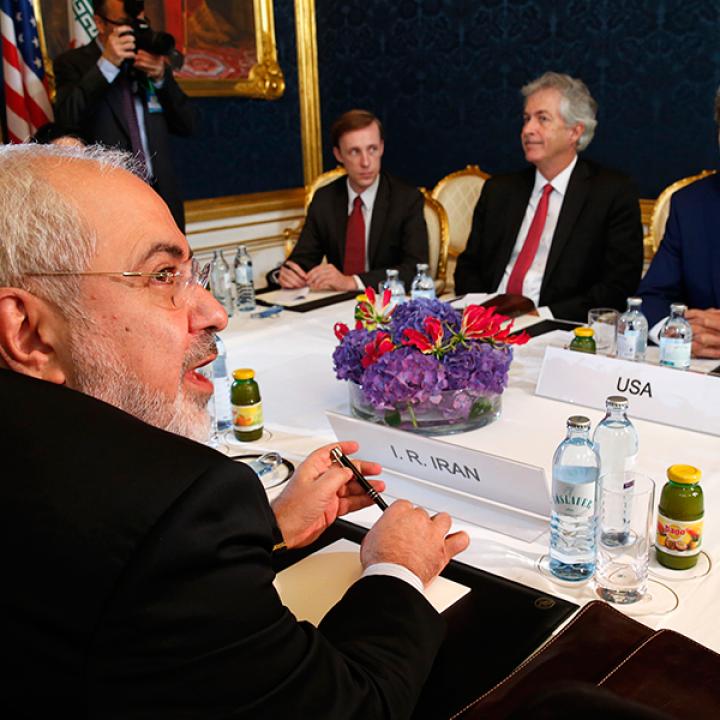
- Policy Analysis
- Articles & Op-Eds
Oil Prices, Midterms Hand U.S. Negotiators New Opportunity in Iran Talks

The decline in oil prices will depress the regime's revenues, and the threat of increased sanctions is newly credible given the composition of the next Congress.
With another deadline missed and another extension inked in the Iran nuclear negotiations, the White House finds itself squeezed on two sides. It faces pressure from Iranian negotiators -- presumed pragmatists in whom the Obama administration has invested its hopes for a transformation in U.S.-Iran relations -- to offer additional concessions, supposedly to placate hardliners in Tehran.
But with each such concession, the administration further alarms Congress and U.S. allies, whose support for any deal will be vital to its ultimate success. These constituencies share President Barack Obama's desire to resolve the crisis through diplomacy, but not his optimism that a deal will lead to U.S.-Iran rapprochement. Instead, they worry Iran will be left with too extensive a nuclear capability and be emboldened in its regional trouble-making.
This dynamic seems unlikely to advance American interests. Any diplomatic negotiation requires not just compromising with the party across the table, but also addressing the concerns of one's own friends and domestic constituencies that have a stake in the outcome. Refusing to do this and instead presenting them with a "take it or leave it" proposition risks further decreasing Washington's standing in the Middle East, undermining the credibility of sanctions, and pinning our hopes on a broader strategic shift in Iran that may not materialize.
Yet our options need not be so bleak. Circumstances have handed the U.S. new leverage, should the nation be savvy enough to use it. The decline in oil prices will depress Iranian revenues more expeditiously than new sanctions could. Yet the threat of increased sanctions is newly credible, thanks to the Republican midterm victory. And, for all the contention surrounding it, this is an issue which provokes bipartisan unity in Washington -- there is little disagreement on the appropriate objective and even strategy, despite significant disagreements on tactics.
Most importantly, Iran needs a deal more than the U.S. does. The political fortunes of President Hasan Rouhani and his camp likely depend on one. For Iran's Supreme Leader Ayatollah Ali Khamenei and the hardliners, the reality of diminished economic prospects is inescapable, hence his support for talks despite his unwavering anti-Americanism. And even if it wanted to produce a nuclear weapon, Iran would need to surmount considerable obstacles and would face the threat of military attack.
The foremost question for U.S. policymakers is how to translate the pressure on Iran into a worthwhile deal. It avails the U.S. little if new pressure leads Iran to accept a deal if that agreement is a bad one for the U.S. -- instead it should be used to improve the terms of a deal. The clearest path to this outcome for the White House is not only to stop improving its offers to Iran, but to toughen its negotiating position and agree to impose new sanctions by a date certain in exchange for Congress agreeing to the extension of talks and working with the White House on a smart sanctions relief offer.
At the same time, the U.S. should counter Iran's regional activities -- most notably by applying serious pressure to the Assad regime in Syria to reinforce the President's threatened "military option" and demonstrate that a nuclear deal will not be a harbinger of a broader reorientation of U.S. Mideast policy.
Michael Singh is the Lane-Swig Senior Fellow and managing director at The Washington Institute. This article originally appeared on the Wall Street Journal's "Think Tank" blog.
Wall Street Journal



